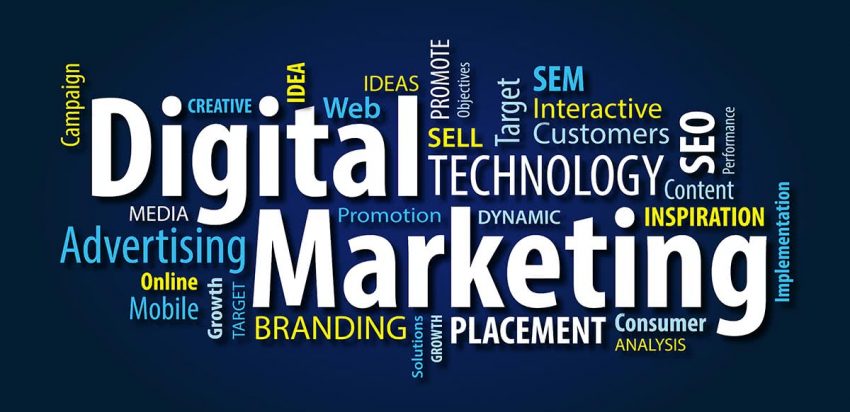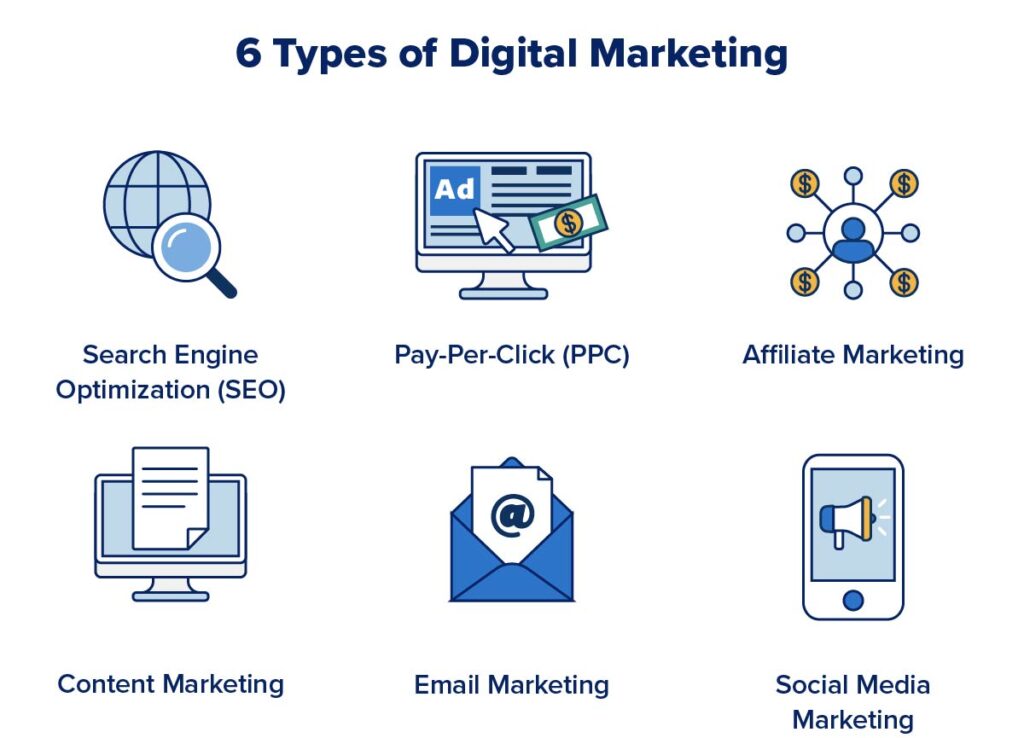Table of Contents

Digital marketing has fundamentally changed the way businesses connect with consumers. In an era where the majority of interactions happen online, understanding the various types of digital marketing is essential for any organization aiming to thrive. From small businesses to large corporations, digital marketing strategies allow brands to reach targeted audiences, increase engagement, and drive sales in ways that traditional marketing methods simply cannot match. This article will explore the primary types of digital marketing, examining their unique attributes, strategies, and best practices.
In the vast realm of digital marketing, businesses can choose from various techniques tailored to their specific needs and goals. The main types include Search Engine Optimization (SEO), Pay-Per-Click Advertising (PPC), Content Marketing, Social Media Marketing, and Email Marketing. Each type serves a distinct purpose and employs unique methodologies, but they all share the common objective of enhancing brand visibility and engaging potential customers. Understanding these types of digital marketing not only empowers businesses to formulate effective strategies but also equips them to adapt to the evolving digital landscape.
1. Search Engine Optimization (SEO) – Types of Digital Marketing
Search Engine Optimization (SEO) is one of the cornerstones of digital marketing, focusing on improving a website’s visibility in search engine results. The primary goal of SEO is to attract organic traffic, which refers to visitors who arrive at a website through unpaid search results. SEO encompasses various techniques and strategies, including keyword research, content optimization, link building, and technical improvements. To effectively implement SEO, businesses must understand how search engines work and the factors influencing their ranking algorithms.
Key Components of SEO:
- On-Page SEO: This involves optimizing individual web pages to rank higher. Key elements include using appropriate keywords, optimizing meta tags, and ensuring content quality.
- Off-Page SEO: This focuses on activities outside the website that influence rankings, such as link building, social media engagement, and guest blogging.
- Technical SEO: This involves improving the technical aspects of a website, such as site speed, mobile-friendliness, and crawlability, ensuring search engines can effectively index and rank the site.
Utilizing tools like Google Analytics, SEMrush, and Moz can aid businesses in tracking their SEO performance, identifying areas for improvement, and benchmarking against competitors. Successful SEO campaigns not only improve visibility but also build trust and authority in the brand, making it essential for long-term digital marketing success.
2. Pay-Per-Click Advertising (PPC)
Pay-Per-Click (PPC) advertising is another pivotal type of digital marketing that allows businesses to display ads on search engines and social media platforms. Unlike traditional advertising, where costs are incurred regardless of results, PPC enables brands to pay only when a user clicks on their ad. This performance-based model makes PPC an attractive option for businesses looking to achieve immediate visibility and drive traffic.
Key Platforms:
- Google Ads: The most widely used PPC platform, allowing businesses to display ads in Google search results and on partner websites.
- Social Media Ads: Platforms like Facebook, Instagram, and LinkedIn offer targeted advertising options, allowing brands to reach specific demographics and interests.
To maximize the effectiveness of PPC campaigns, businesses should develop targeted ad copy, choose relevant keywords, and establish a clear budget. Analysing performance metrics such as click-through rates (CTR), conversion rates, and return on ad spend (ROAS) is crucial for optimizing ongoing campaigns and ensuring a positive return on investment.

3. Content Marketing
Content marketing is a strategic approach focused on creating and distributing valuable, relevant content to attract and engage a target audience. Unlike traditional advertising, which often promotes products directly, content marketing aims to inform, entertain, or educate potential customers, building trust and authority over time. This can take many forms, including blog posts, videos, infographics, podcasts, and eBooks.
Effective content marketing not only drives organic traffic to a website through SEO but also enhances brand loyalty and customer retention. By providing high-quality, relevant content, businesses can position themselves as industry leaders, making it more likely that customers will choose their products or services when making purchasing decisions. Measuring success through metrics such as engagement rates, shares, and conversions allows brands to refine their strategies and maximize impact. In a types of digital marketing landscape where consumers seek authentic connections, content marketing is essential for fostering meaningful relationships.
4. Social Media Marketing
Social media marketing involves using platforms like Facebook, Instagram, Twitter, and LinkedIn to promote products, engage with audiences, and build brand awareness. By creating and sharing content tailored to each platform, businesses can foster community interaction and encourage user-generated content. Social media allows for direct communication with customers, enabling brands to respond to feedback and enhance customer relationships. Effective social media strategies often include targeted advertising, influencer partnerships, and consistent engagement through posts, stories, and comments. As a vital component of types of digital marketing, social media helps brands reach broader audiences and drive traffic to their websites.
5. Email Marketing
Email marketing is a powerful types of Digital Marketing
digital marketing strategy that involves sending targeted messages to a specific audience via email. It allows businesses to nurture leads, engage customers, and drive conversions through personalized content, promotional offers, and newsletters. By segmenting their email lists, brands can tailor messages based on customer preferences and behaviours, increasing relevance and effectiveness. Successful email marketing campaigns often utilize compelling subject lines, clear calls to action, and engaging visuals. Metrics such as open rates, click-through rates, and conversions help assess performance, enabling businesses to refine their strategies for better results and stronger customer relationships.
6. Affiliate Marketing
Affiliate marketing is a performance-based types of
digital marketing strategy where businesses partner with individuals or other companies (affiliates) to promote their products or services. Affiliates earn a commission for each sale or lead generated through their marketing efforts, which often include blog posts, social media promotions, and email campaigns. This model allows businesses to expand their reach without upfront advertising costs, as they only pay for successful conversions. By leveraging the influence and networks of affiliates, companies can tap into new audiences and enhance their online presence, making affiliate marketing a cost-effective strategy for growth. Types of Digital Marketing
Conclusion
In conclusion, understanding the various types of digital marketing is essential for businesses aiming to thrive in the competitive online landscape. Each type—whether it’s Search Engine Optimization, Pay-Per-Click Advertising, Content Marketing, Social Media Marketing, Email Marketing, or Affiliate Marketing—offers unique opportunities to connect with audiences, enhance brand visibility, and drive conversions. As consumer behaviors and technologies evolve, so too must the strategies employed by marketers. Integrating these types of digital marketing types into a cohesive strategy enables businesses to create a comprehensive approach that maximizes engagement and ROI. Staying informed about emerging trends and best practices will empower brands to adapt and succeed in a rapidly changing environment. Ultimately, leveraging the strengths of each types
of digital marketing can lead to more meaningful customer relationships, greater brand loyalty, and sustained growth in an increasingly digital world.



Leave a Reply